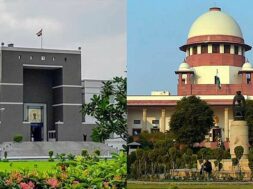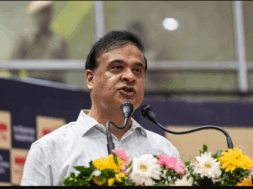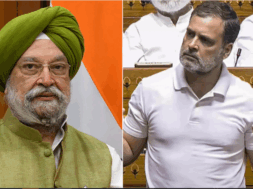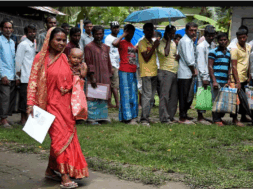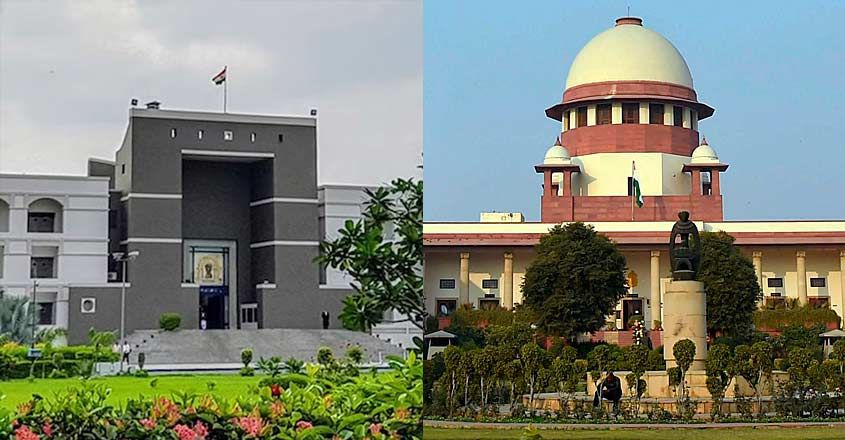
Manas Dasgupta
NEW DELHI, Aug 21: Coming down heavily on Gujarat High Court, the Supreme Court on Monday said any court passing an order against a superior court’s ruling was against constitutional philosophy.
The peculiar situation was created after the Gujarat High Court arranged a suo motu hearing of a case of rape survivor for the medial termination of her pregnancy already in to 28th week. The High Court, which had earlier had rejected the plea, called for hearing soon after the Supreme Court completed the hearing in the same case and fixed Monday for issuing orders.
The Supreme Court on Monday expressing strong resentment over the Gujarat High Court’s attitude, allowed the termination of the pregnancy of the 25-year old rape survivor.
“What is happening in Gujarat High Court? No court in India can pass an order against a superior court order. It is against constitutional philosophy,” the Supreme Court bench of Justice B V Nagarathna and Justice Ujjal Bhuyan said after it was informed of an order by the high court on Saturday.
“What is happening in Gujarat High Court? No court in India can pass an order against a superior court order. It is against constitutional philosophy,” the Supreme Court bench of Justice B V Nagarathna and Justice Ujjal Bhuyan said after it was informed of an order by the high court on Saturday.
Justice Nagarathna questioned the very need for the Gujarat High Court to convene a suo motu hearing in a case it had already dismissed, that too, shortly after the Supreme Court had heard it in appeal. “We do not appreciate the counterblast by the High Court to the order of the Supreme Court. What is happening in the High Court of Gujarat?” Justice Nagarathna asked in open court. The Bench noted that the order of the Single Judge of the High Court was against settled procedure and orders.
As against the lethargic way of handling the case even when the woman was racing against time since High Court had adjourned the hearing for 12 days even after receiving a favourable medical report, the Supreme Court had moved swiftly within hours of the woman filling a petition on Saturday. No sooner the Supreme Court registry registered the case, the Chief Justice DY Chandrachud constituted a special bench and the two judges rushed to the court to hear the matter. The bench of Justice Nagarathna and Bhuyan issued an immediate order for a medical re-examination report within 24 hours and fixed the hearing on the report first thing on Monday morning when it ordered termination of the pregnancy.
The Supreme Court had also noted that medical report was taken on record by the high court on August 11 but “strangely”, the matter was listed 12 days later, “losing sight of the fact that every day’s delay was crucial and of great significance having regard to the facts and circumstances of the case.” “In such cases, there must be, not undue urgency, but at least a sense of urgency in such matters and not a lackadaisical attitude of treating it as any normal case and just adjourning it. We are sorry to say and make this remark,” the bench orally said.
Solicitor General Tushar Mehta, who was representing the Gujarat government, said the Saturday’s order was passed only to fix a “clerical error”. “There was a clerical error in the previous order and that was fixed on Saturday. It was a misunderstanding,” he said, adding, “We as the state government will request the judge to recall the order.”
The apex court Bench was informed that the High Court had passed an order to “clarify” that the adjournment was given to obtain her view on whether she was willing to give her child into State custody. This upset the Bench even more. Justice Bhuyan said an unjust condition could not be perpetuated on a rape survivor.
“How can you force the rape survivor to undergo pregnancy?” Justice Bhuyan asked. Mehta made an effort to pacify the Bench, saying there was some misunderstanding and it would be demoralising for the High Court judge if anything went on record from the side of the Supreme Court. But the Bench did not relent, maintaining there could not be a counterblast to the Supreme Court’s order. The Bench said it was not targeting a particular judge but questioning the procedure followed in such a time-sensitive case. The apex court, however, refrained from recording anything adverse in its order against the High Court while allowing the plea for medical termination of the pregnancy.
The Bench noted that a woman has a sacrosanct right to bodily integrity. It said pregnancy caused by a sexual assault was injurious to the mental health of the survivor. The court ordered that the foetus be provided medical support and incubation in case it survives and the State ensure that the child was adopted in accordance with the law.
This comes after the Supreme Court on Saturday flagged the delay by the high court in deciding the rape survivor’s petition, saying “valuable time” has been lost. Criticising the “lackadaisical attitude” of the high court, the Supreme Court on Saturday issued notices to Gujarat government and others, seeking their responses on the woman’s plea.
The 25-year-old’s counsel told the Supreme Court that she approached the court on August 7 and the matter was heard the next day. The high court on August 8 directed that a medical board be formed to look into the status of the petitioner’s pregnancy and her health condition. A medical college examined the rape survivor and submitted its report on August 10. The report, the petitioner’s counsel said, had ruled that the pregnancy can be terminated.
The bench also noted that the petitioner’s counsel has informed that the case status of the matter showed that the high court had rejected the petition on August 17, but no reasons were given, and the order was yet to be uploaded on the high court’s website. The petitioner’s counsel then told the court that she would soon be approaching the 28th week of her pregnancy and added that a fresh medical report should be sought. The court then asked the petitioner to appear before the medical board again. Following the fresh examination, the Supreme Court today allowed the termination of pregnancy.
